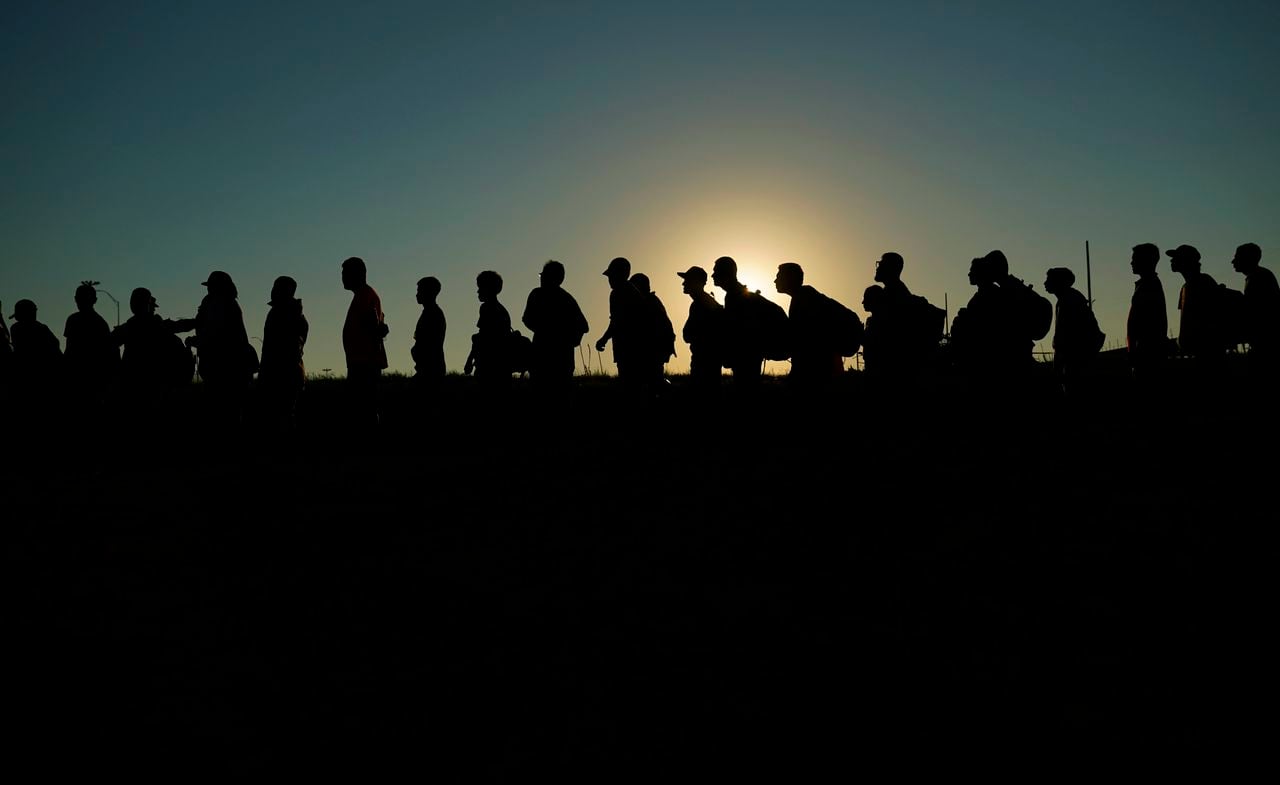SCOTUS blocks Texas immigration deportation law from going into effect — but only until March 13
The Supreme Court on Monday blocked the enactment of Texas Senate Bill 4, a controversial piece of legislation that will give state police the ability to arrest and deport people suspected of unlawfully crossing from Mexico.
The legislation was signed into law in December by Gov. Greg Abbott and was expected to take effect on March 5 but was blocked for a few days before the court took up the case. Justice Samuel Alito ordered a delay until March 13 to give Texas time to respond to the Justice Department’s request to stop the legislation.
“SB-4 makes our communities less safe,” Domingo Garcia, the League of United Latin American Citizens national president, said in a statement. “It will result in more harm than good because violations like racial profiling will occur more frequently, primarily because of appearance and the color of people’s skin.”
The Supreme Court’s decision comes after the Justice Department on Monday filed an emergency request asking the Supreme Court to intervene. The court issued a stay as it deliberates.
Advocates say the legislation is the “most extreme” anti-immigration law passed in the country. Advocacy groups filed a lawsuit late December, which was consolidated into a suit with the Department of Justice, stating the law was unconstitutional and contradicted federal immigration policy.
“We have long warned that this law will separate families and harm people across the state as Governor Abbott continues his relentless campaign against people who are immigrants,” according to a joint statement from the advocacy groups. “We urge the Supreme Court to undo the appeals court’s administrative stay and preserve the decision keeping this harmful law from going into effect.”
The situation could continue to rapidly change, the ACLU of Texas said on its SB 4 information page. Last week, U.S. District Judge David Ezra issued an injunction to prevent enforcement of SB 4 while legal procedures continue.
A district court in Texas previously blocked the law, but an appeals court reversed the decision. It would have gone into effect this weekend had President Joe Biden’s administration and civil rights groups like the ACLU, Las Americas Immigrant Advocacy Center, American Gateways, and El Paso County Commissioners not asked the Supreme Court to uphold the initial ruling.
Abbott reiterated his belief that “Texas has the right to defend itself” from the “invasion” at the border in a statement on Thursday.
Policy attorney and strategist of the Immigrant Legal Resource Center (ILRC) Jennefer Canales-Pelaez said if SB 4 goes into effect it will “no doubt” act as a blueprint for anti-immigrant laws in other states.
On Tuesday, the Iowa senate voted down party lines to pass a law that criminalizes people attempting to enter the state after being deported or denied entry, a bill that analysts say is modeled after Texas’ legislation, according to the Des Moines Register.
The ILRC developed a travel advisory map which includes information on counties that have passed anti-immigrant policies in Texas and provides people with knowledge of their rights in the wake of recent legislation.
